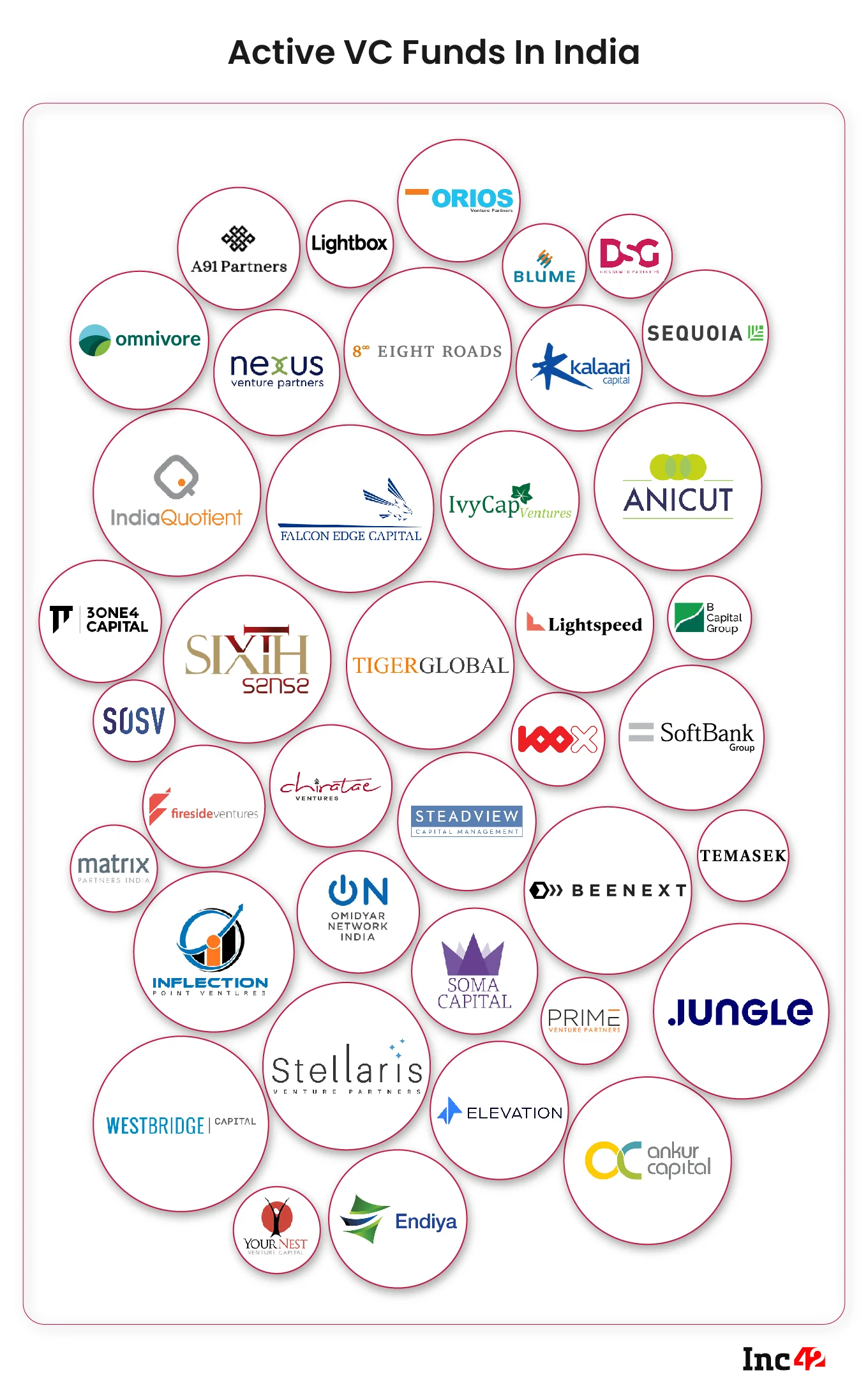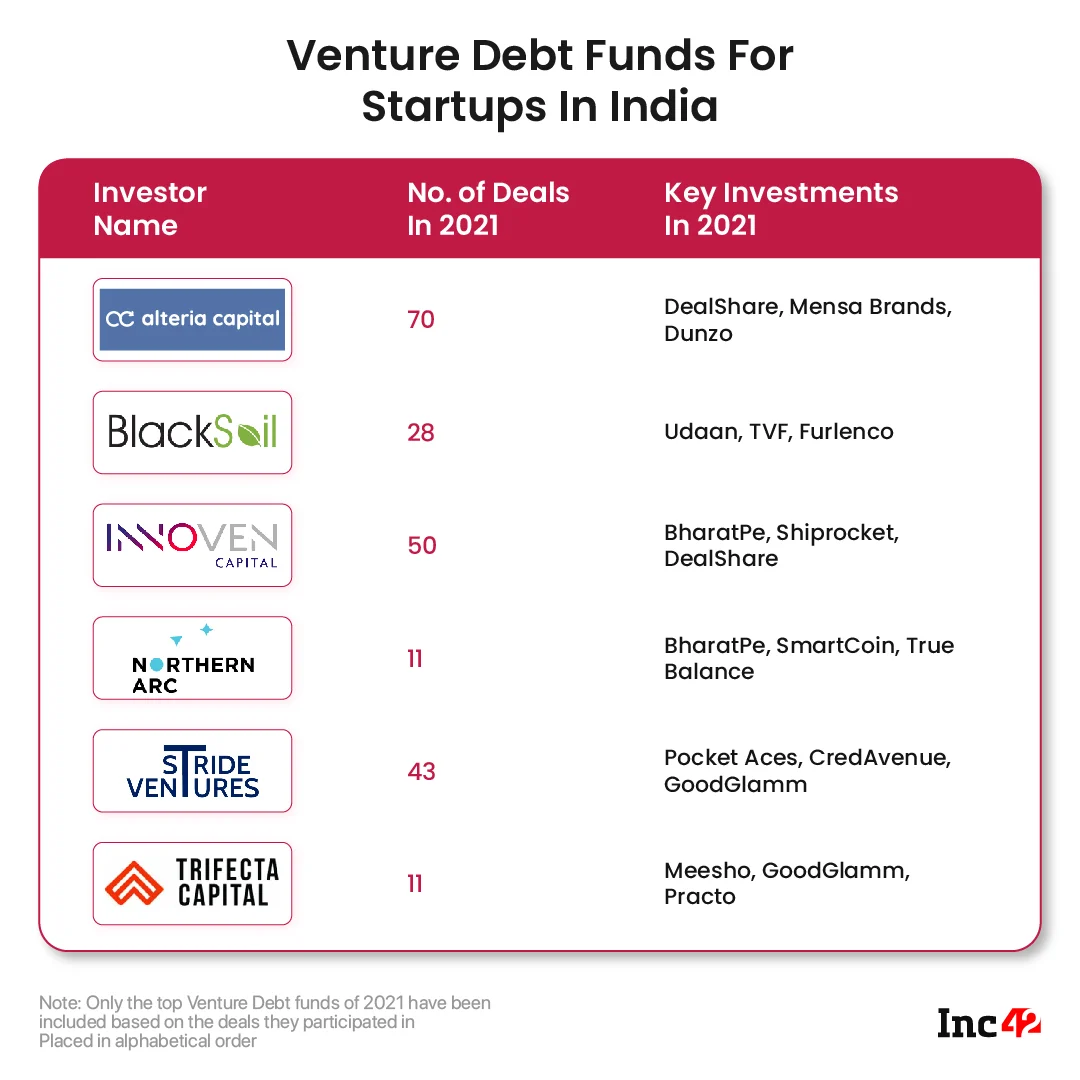India’s startup ecosystem is booming. The Indian startup ecosystem has seen over 57K startups launched till date
Should you bootstrap your startup or raise venture capital? It is dependent on a lot of factors — the startups’ stage, its goals, and its financing requirement among others
No matter which route you choose, do evaluate all the different options for startup funding. The future of your business depends on it

Are you looking to fund your startup in India? The timing is just right! India’s startup ecosystem is booming. The Indian startup ecosystem has seen over 57K startups launched till date. Inc42 calculations put the value created by Indian startups to be over $450 Bn. Around $112 Bn has been raised by Indian startups between 2014 to 2021.
The Indian social milieu is also reflecting this change. Shark Tank India, a reality show where entrepreneurs pitch their products to real-life investors (called sharks), has gripped the nation. As you can see, extracting startup funding from a shark needs you to be aggressive when it comes to selling your idea, either through a prototype or a solid business plan.
Startup Funding
Startup funding refers to raising the money a company requires to meet its costs, like product development, marketing, office spaces, and inventory. In later stages, a startup might also raise funds for product launch expansion into newer markets or to go public.
Most often, it is obtained through venture capitalists, angel investors, banks, or other financial institutions. However, some startups choose to self-fund, to begin with, and raise external funding as they scale up.
Let’s examine the different types of startup funding.
Self-Funding Or Bootstrapping
Self-funding—also called bootstrapping—can be an effective first-funding option. You do not have to pay interest on a loan or share profits with other investors, and most importantly, you retain control. However, the flip side is that you could lose your life’s savings.
Bootstrapping also means operating on a shoestring budget. Yet, some of the greatest entrepreneurs have been self-made. To bootstrap your way to mega-success, an entrepreneur must execute a big idea, like Sridhar Vembu of Zoho, or Zerodha’s Nithin Kamath.
Family And Friends Led Funding
Several startup founders have raised money from their friends and family. With no initial orders, they are the most likely to trust you. While it’s a good practice to draw up agreements that specify interest on their loan or equity stake, this form of funding is a less formal process. More importantly, it allows you to keep complete control of your business.
However, if you fail to deliver, it could strain your personal relationships. It may be a good idea to consider professional investors, who can absorb losses better than individuals.
Investor Led Funding
- Angel Funding Or Seed Funding: Angel investors are groups of high net-worth individuals who like your business idea and decide to back you. This type of startup funding is also referred to as seed funding, as it nurtures your business in the earliest stage. So why do angel investors provide seed money to a small business without a track record? This is because they are risk-takers who will sell their shares for a profit.
Angel investors have helped start up many prominent companies in India, including Urban Company, Ola, and Snapdeal. It is a good option for startups that may otherwise not get a bank loan. However, angel investors expect up to 30% equity, which means relinquishing control.
The average ticket size of an angel investor is lower than that of a venture capitalist. So if you want bigger bucks, then venture capital (VC) funding is the way to go.
Read About India’s Most Active Angel Investors
- Venture Capital Funding: Venture capitalists are no angels. VCs take their pound of flesh in equity and control. So it is advisable to use VC funding at a later stage when you are already generating revenue and need the big bucks for rapid growth. Flipkart and BookMyShow owe their success to this strategy.
Venture capital firms are managed by professionals and prefer to invest in companies with huge potential, and some do look to recover their investment within three to five years. So, if your product has a long gestation period, avoid approaching VCs looking for quick exits. Also, keep in mind your cash burn as closing the deal can take anywhere from 2-6 months. as an investor evaluates your business from every angle, from sustainability to scalability.
- Debt Funding Or Venture Debt: So, is venture debt an alternative to angel funding or venture capital? Rather, mixing equity and debt could be the key to a startup’s growth without giving up more ownership.
Venture debt is a capital loan provided only to companies who have raised venture capital. Venture loans are particularly helpful when you need to finance a specific project, like a marketing campaign or purchase equipment.
Venture debt is cheaper than equity financing and can be used to complement equity financing. However, the downside is that this debt takes precedence over other outstanding obligations. So, if a company is not entirely sure about repayment, it must avoid this financing tool.
The amount of venture debt funding in Indian startups has doubled from $217 Mn in 2019 to $427 Mn in 2020. This shows that the Indian startup ecosystem is maturing, and startups are exploring alternative fundraising methods. The leading platforms in India for venture debt include players such as Trifecta Capital, Unicorn India Ventures, InnoVen Capital, and Alteria Capital.
Bank Loan
Commercial banks do give loans to startups. However, to mitigate the higher risk, lending guidelines for loan approval are more stringent. Banks also need to see your ability to pay back.
So, they expect you, the founder, to put up a strong collateral—usually your home. This shows your commitment to the project. Banks also check if there is enough money in your accounts to cover loan payments for at least two months.
Crowdfunding
Crowdfunding is another way of funding a startup. It cuts out professional investors by putting funding in the hands of common people. How does it work?
An entrepreneur will put up their business plan on a crowdfunding platform. Consumers will give money if they believe in the idea. Those giving money will make online pledges with the promise of pre-buying the product or donating.
Along with financing, crowdfunding also generates interest and helps in marketing the product. Crowdfunding sites help innovators launch ideas, particularly when unsure about the demand. Some of the popular crowdfunding sites in India are Catapoolt, Fundlined, Indiegogo, Ketto, and Wishberry.
The Bottom Line
Should you bootstrap your startup or raise venture capital? It is a subjective choice. It is dependent on a lot of factors — the startups’ stage, its goals, and its financing requirement among others.
Therefore, it is essential to understand these startup funding methods and the trade-offs involved. No matter which route you choose, do evaluate — much like a shark — all the different options of startup funding. The future of your business depends on it.












